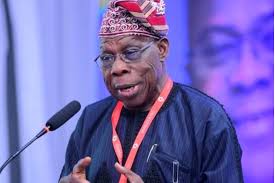Ghanaian President John Mahama, former Nigerian President Olusegun Obasanjo and other African statesmen are expected to attend the Goodluck Jonathan Foundation (GJF) 2025 Democracy Dialogue scheduled for Accra, Ghana, on September 17.
Mr Ikechukwu Eze, Special Adviser to former President Goodluck Jonathan, said in a statement in Abuja that the dialogue would also attract global development experts.
According to him, other distinguished leaders expected include Jonathan himself, Mr Kadré Ouédraogo, former Prime Minister of Burkina Faso and former President of the ECOWAS Commission, and Dr Omar Alieu Touray, current President of the Commission.
Also expected is the Most Rev. Matthew Kukah, Catholic Bishop of Sokoto Diocese.
Eze explained that this year’s dialogue, themed ‘Why Democracies Die’, would be co-hosted by the Foundation in collaboration with the Government of Ghana.
He added that the dialogue would provide participants an opportunity to reflect on the progress, challenges and prospects of decades of democratic rule in West Africa.
Obasanjo will chair the event, while Bishop Kukah will deliver the keynote address.
The 2025 session marks the fourth in the series since its launch in 2021 as part of efforts to interrogate democratic governance in the sub-region and assess its sustainability and impact on citizens’ lives.
Eze recalled that the 2024 edition, which focused on purposeful education, featured Prof. Olubayi Olubayi, Chief Academic Officer at Maarifa Education in Kenya and former Vice Chancellor of the International University of East Africa in Uganda.
He noted that Olubayi, in his keynote, strongly advocated for African nations to establish selective, merit-based institutions and elite research universities to anchor functional education and drive technological advancement.
“It is expected that the keynote speaker, Bishop Kukah, panelists and other resource persons at the 2025 dialogue would throw more light on what needs to be done to arrest the pattern of decline and gradual erosion of rules and norms which democracies have continued to experience in Africa,” Eze said.
(NAN)


